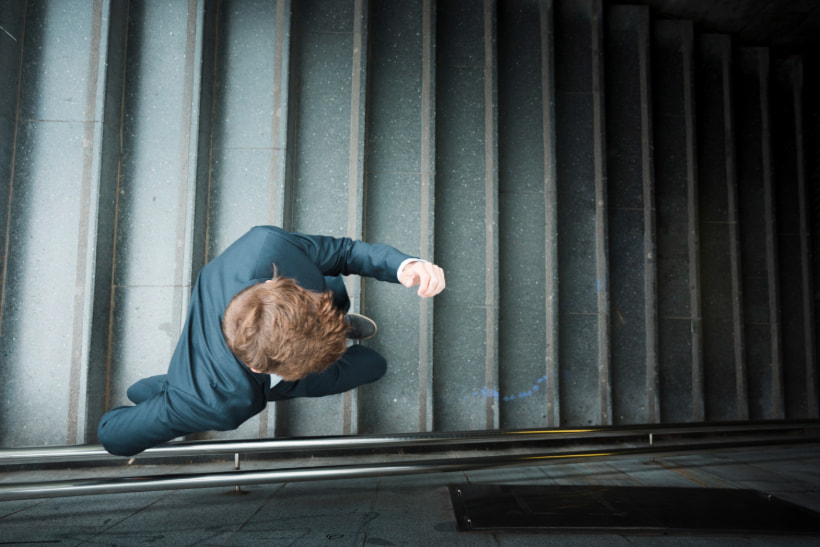Fear of failure is one of the most universal human experiences. Yet, the truly elite performers—those who reshape industries, break records, and leave lasting legacies—have a unique relationship with this fear. They don’t avoid it. They don’t suppress it. They use it.
The fear of failure is not something to eliminate, but something to harness. It is a powerful force that can either cripple you or propel you to greatness. The difference lies in how you approach it, how you perceive it, and how you act in the face of it.
If you’re to ascend to the highest echelons of success and sovereignty, learning to overcome and utilize your fear is paramount. Here are the key lessons drawn from elite performers on how to turn fear into your greatest ally.
Reframe Failure as Feedback, Not Defeat
The elite understand something fundamental about failure: it is not the end, but the beginning. In fact, the best performers don’t fear failure—they embrace it as a source of information.
Failure is simply feedback. It tells you what didn’t work, what you can improve, and how you can refine your approach. In this light, failure is not a scar to hide; it’s a badge of progress.
Think of the great innovators—Steve Jobs, Thomas Edison, Elon Musk—all of whom encountered failure early and often. Jobs was ousted from Apple, Edison faced countless setbacks with the light bulb, and Musk endured multiple near-bankruptcies with Tesla and SpaceX. Yet, each of them viewed failure not as an obstacle, but as an essential step toward ultimate success.
Rather than shying away from failure, the elite embrace it with open arms, knowing that every misstep brings them closer to the desired outcome.
Action Step: Start rethinking failure in your own life. When you face a setback, ask: “What lesson can I learn from this?” and “How can I apply this lesson next time?”
Detach Your Identity from Outcomes
One of the core reasons people fear failure is that they tie their personal worth to the results they achieve. If the outcome is a success, they feel validated. If the outcome is failure, they feel ashamed or defeated.
Elite performers understand that their value is intrinsic and separate from any single outcome. They don’t lose when they fail—they learn.
For instance, Michael Jordan, often considered the greatest basketball player of all time, was cut from his high school basketball team. Yet, he didn’t let that define him. His worth wasn’t tied to his success or failure on the court; it was tied to his relentless commitment to improvement.
By detaching your identity from the outcome, you free yourself from the paralyzing fear of failure. You stop seeking validation from external results and instead place your value in your effort, growth, and integrity.
Action Step: Examine how you define your self-worth. If you tie it to external validation or specific achievements, begin shifting that focus. Start valuing the process of growth, not just the end result.
Fear Is a Signal to Step Outside Your Comfort Zone
Fear is nature’s way of alerting us to risk. But the key distinction between elite performers and the average person is this: while most let fear stop them, elite performers view fear as a sign to move forward.
It’s not that the elite are immune to fear—they are simply adept at using it as a guide. Fear signals that you’re doing something significant, something that pushes the boundaries of your current abilities. It indicates growth.
Look at athletes pushing the limits of human performance. The fear of failure is constant—every race, every match, every competition brings with it the risk of loss. Yet, they train for it. They step into the ring with this fear, using it as fuel to prepare harder, dig deeper, and perform better.
Action Step: The next time fear arises, don’t retreat. Ask yourself: “What does this fear reveal about where I need to grow?” Take one small step outside your comfort zone and notice the sense of empowerment that follows.
Focus on the Process, Not the Prize
Elite performers don’t obsess over the end result. Instead, they fall in love with the process—the small, consistent actions that add up to massive success over time.
Take the example of a master violinist. Every day, they practice scales, improve their technique, and refine their craft—not because they expect immediate results, but because they are committed to the process of mastery. In doing so, they make failure a natural part of their progress.
When you focus on the process, the fear of failure loses its power. You shift from a goal-oriented mentality to one of mastery, where every action, regardless of outcome, becomes part of your evolution.
Action Step: Shift your focus from outcomes to process. Each day, commit to doing your best, regardless of external results. Track your progress in terms of effort, not just success or failure.
Build Resilience Through Repeated Exposure
Resilience is not something you’re born with—it’s something you build through repeated exposure to discomfort and failure. The more often you face fear and failure, the more resilient you become.
Think of it like muscle training. The more you challenge your muscles, the stronger they get. Similarly, by continually putting yourself in situations where you may fail, you strengthen your ability to handle adversity.
Elite performers don’t shy away from discomfort—they seek it. They understand that growth doesn’t happen in the comfort zone, and that every failure is an opportunity to increase their capacity for resilience.
Action Step: Start seeking out situations where you’re likely to fail. Take on challenges that stretch you, whether in your business, personal life, or skills development. Over time, you’ll find that failure becomes less intimidating and more empowering.
Create a Support System That Encourages Growth
No elite performer achieves greatness in isolation. They build a network of like-minded individuals who support, challenge, and hold them accountable. When failure strikes, these people are the ones who help them recalibrate and rise again.
Surrounding yourself with a strong, growth-oriented support system is essential. These individuals don’t judge failure as defeat—they help you see it as part of the journey. They remind you that failure isn’t fatal, but temporary.
Action Step: Cultivate a network of mentors, peers, and supporters who encourage you to take risks and help you learn from failure. Build relationships with those who push you to grow, not those who coddle you.
Final Thoughts: Fear is the Path to Mastery
Elite performers don’t fear failure—they use it as the catalyst for growth, learning, and unstoppable momentum. By reframing failure as feedback, detaching your identity from outcomes, stepping into fear, focusing on the process, building resilience, and surrounding yourself with growth-minded people, you can turn failure from an obstacle into an ally.
The fear of failure will always be present, but the elite have mastered the art of moving forward in spite of it. Now, it’s your turn to do the same. Harness the power of failure, and you will unlock the true potential within you.




